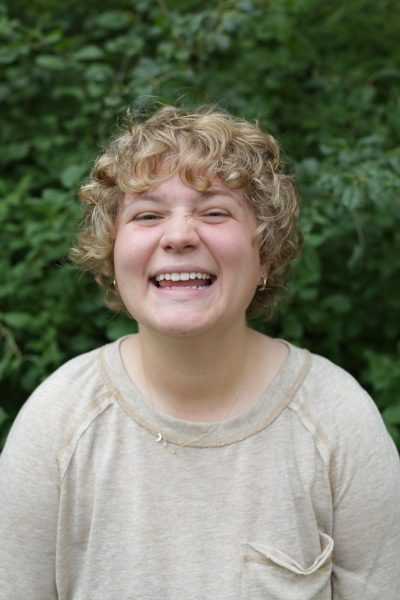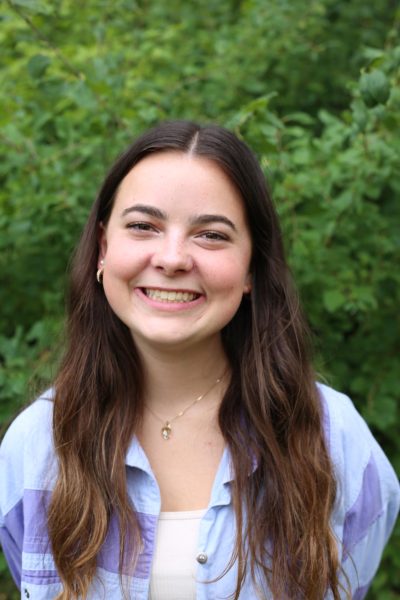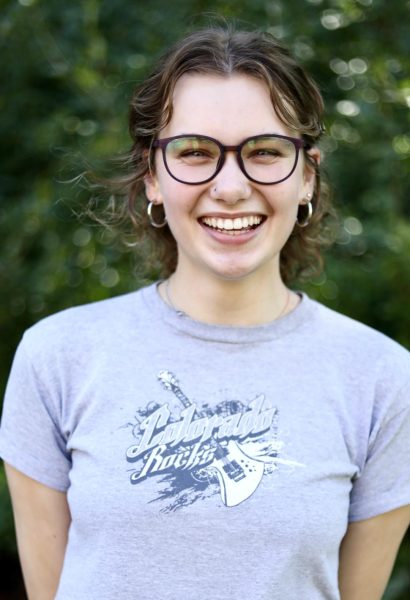Susan Brooks studied Bethel University’s 2022-2023 faculty contract. In previous years’ contracts, she had checked boxes agreeing to “work harmoniously within the guidelines of the Covenant for Life Together” and “work harmoniously within this Affirmation of Faith but hold different personal views on” various ideas. Brooks was able to work comfortably in a space that allowed for multiple views on the Christian faith and the mysteries of God.
This year was different.
In the revised contract, Bethel required faculty to sign a statement saying, “By entering into this Agreement, Faculty Member agrees that he/she has read, believes in and shall abide by the principles of Bethel’s Affirmation of Faith and Covenant for Life Together at Bethel, as well as any other statements or policies of faith applicable to faculty of Bethel.”
Brooks felt that her ability to use her God-given curiosity and decision-making qualities within the workplace had been taken away. To her, the change in wording left little to no room for differing views, instead requiring faculty to “believe in” and “abide by” each statement contained in the Affirmation of Faith and Covenant for Life Together.
Brooks decided to leave Bethel and accept a position as Associate Director of Faith + Lead Academy at Luther Seminary in St. Paul in July 2022, where she now works as the director. Aside from Brooks, former Bethel employees Tanden Brekke and Matthew Kuchem also left Bethel in pursuit of other positions, but for different reasons. They were not the only faculty members to do so. Bethel’s continued financial struggle and administrative decisions have led to decreased faculty morale, reflected by Bethel falling into low percentiles for workplace satisfaction on the 2023 Best Christian Workplace survey.
To administration, the change in the Affirmation of Faith and Covenant for Life Together wording signified clarity in these documents, aiming to create unity among employees moving forward. Bethel University President Ross Allen stated that this change addressed employee requests for a more clear definition of how all Bethel community members should abide by guiding documents such as these.
“That was a decision that was made without any faculty input [and] without any conversation,” Brooks said. “To me, that signified a shift, both in the leadership style as well as in my identity as a faculty member.”
Since Brooks’ departure, employee satisfaction surveys have continuously shown negative results. In Bethel’s Employee Engagement Survey from 2022, 21% of employees — including staff, faculty and administration — responded to the statement “I feel valued as an individual at Bethel” as “neutral,” and 28% felt undervalued, checking boxes labeled “disagree” and “strongly disagree.”
Results also varied in response to the statement, “There are no substantial obstacles at work to doing my job well,” where 40% answered “disagree” or “strongly disagree.”
This survey aims to measure employee engagement and organizational health. In 2022, the numbers skewed more positively for administrators and staff and more negatively for faculty members, according to the results issued by the Office of People and Culture.
In a summary to all campus employees following the survey, the Office of People and Culture said it will “partner closely with various leadership groups at Bethel to select themes to address in the university-wide action-planning process” while keeping these results in mind.
Since then, additional surveys have been conducted among faculty members and employee satisfaction has continued to decrease. The 2023 Best Christian Workplaces survey is one of these tools, designed to compare how Bethel faculty satisfaction compares to other Christian organizations.
While the results of this survey are not public, Faculty Senate President Mauvalyn Bowen characterized them as showing faculty struggling with an unmanageable workload, lack of recognition and compensation, poor communication from administration and lacking opportunities for professional growth.
“Although we might be struggling with workload, recognition or compensation, we are leaning and centering on Jesus,” Bowen said.
In response to these results, she added, the administration is taking action by meeting with each department.
Allen added that the Best Christian Workplace Survey has given the administration “clear action steps to continue moving Bethel forward.” On top of this, he said, “We’ve been able to add an essential cost of living increase for our employees.”
During Brooks’ first 22 years as a professor, she appreciated how Bethel acknowledged that Christians hold differing views on issues and described the school as being in a “sweet spot” where it prioritized the student experience, Christ-centeredness and financial security.
“When Bethel was at its best, I think we did a great job of walking the line between Christian orthodoxy and curiosity,” she said. “In 2017 I remember saying to my husband, ‘I love my job at Bethel so much. The wheels would really have to fall off in order for me to look for something else.’”
She left five years later.
Hired as an English professor in 1998, Brooks witnessed Bethel undergo a change in leadership and experience financial scarcities that led to staff, department and budget cuts.
Brooks assumed the role of Department Chair in 2016 and watched as the 10 English department members shrunk to seven by 2022. After leaving Bethel, her position was not rehired and two additional roles were cut, leaving the department with four faculty members.
Over the next few years, Bethel went through multiple rounds of staff, faculty and department cuts, a change in the faculty contract and the loss of programs such as England Term, all of which led to a change in Brooks’ perspective. Her husband told her the “wheels had fallen off” and she was now “riding a unicycle.”
“Shortly after that, we had yet another kind of financial crisis and I found myself writing my third or fourth report on why the English department shouldn’t be cut,” Brooks said. “That was when I started thinking, ‘Why am I working for a place where I have to justify my own existence and the existence of my amazing colleagues over and over and over again?’”
By now, Brooks had started keeping a file on what wasn’t working at Bethel. As the list grew longer, her drive to stay at the school diminished.
“The financial piece wore me down — I think it wears a lot of people down — and probably made me vulnerable then to other changes,” Brooks said. “I was already [questioning], ‘Is my future limited? How many times are we going to have cuts before I get cut?’ And I want to go on my own terms. I don’t want to go because I was cut.”
Bethel has faced increasing financial challenges along with other higher education institutions across the country. National trends like lower enrollment and rising operational costs have forced the university “to make incredibly tough decisions in order to position Bethel for strength into the future,” according to Allen.
—
Other faculty began to experience low morale due to changes at Bethel as well. Tanden Brekke was a faculty member who felt that Bethel’s goals and values from when he began working at the institution had fallen short of his expectations.
When Brekke first interviewed at Bethel, the former Human Resources office told him Bethel was an anti-racist institution. Brekke had found exactly the kind of work he wanted to do, describing Bethel as a “holy trifecta” where he could do anti-racism work within a pastoral context in higher education.
Shortly after taking on the positions of Assistant Campus Pastor and adjunct professor at Bethel in 2008, Brekke found discussion and proposals about anti-racism, but not a lot of definitive action. He felt Bethel went around in circles without reaching a consensus.
“I found doing anti-racism work at Bethel challenging,” Brekke said. “For those first few years, there were some espoused values around anti-racism. But over time, I realized there was not as much action and support.”
As cuts grew nearer in 2012-2013, Brekke started to question his job security.
Brekke hoped that his work was making an impact on Bethel’s campus, but as the years passed, he found that external influences impacted its success. Working closely with both the sociology and reconciliation studies departments, his job felt less secure and became more challenging when faculty from these areas started experiencing cuts. Now, both the reconciliation studies and sociology majors and minors are no longer available to incoming students.
In 2016, Brekke moved into the role of Assistant Director of Service-Learning and Community Engagement at Bethel, working closely with the Frogtown and Summit-University neighborhoods in St. Paul. Soon after, he realized these cuts were directly affecting his work, which centered around connecting with faculty and creating ways to incorporate community-engaged learning in both the classroom and through community work-study with the FSU partnership.
“Faculty were stretched as far as what was expected of them to do,” he said. “There was a lot of low morale, and faculty were feeling a lot of pressure.”
Brekke said teaching classes became increasingly challenging for professors to have the time or energy to develop the kinds of projects he envisioned at Bethel. Or to add new community-engaged learning components, which fueled his work.
In 2019, Brekke received his doctorate in higher education from Bethel and started what is now known as the Center for Community-Engaged Learning. The CCEL focuses on giving Bethel students opportunities in academic and place-based community collaboration in an alliance with the FSU partnership. Over the next few years, he worked with Bethel to restructure his title and earn a promotion that reflected his degrees.
During the time that he was working for a promotion, Brekke received a job offer from the University of St. Thomas. He had a decision to make.
Over time, compared to when Brekke was first hired at Bethel, he felt that the anti-racist work had lost its traction, slipping to broader influences of evangelicalism.
In 2022, he took the job at St. Thomas to become clinical faculty in Peace & Justice Studies at St. Thomas’ Dougherty Family College. His core curriculum aims to tackle issues of social injustice and focus on what it means for students to “contribute to the common good in a way that is good for all of us.”
However, not all former Bethel employees left due to financial scarcity and staff cuts. Kuchem, who left after the 2022-2023 school year, said he remains closely aligned with Bethel’s values. He served as Assistant Professor of Political Science and represented the History, Philosophy and Political Science Department on the Faculty Senate during the last round of cuts.
Kuchem accepted a new position at the Bipartisan Policy Center in Washington, D.C., in August 2023 after teaching at Bethel for four years. He sought opportunities for more focused work on higher education reform and felt that something was missing in his previous role. Kuchem now partners with senior university leadership to cultivate academic policies and campus cultures that “better value viewpoint diversity and the free exchange of ideas.”
“It’s a mission that I’m passionate about,” Kuchem said. “Bethel truly is a special place, and I will always be grateful for the time I had in the Bethel community.”
—

When Brooks interviewed at Luther, where she now holds a position as the Director of Faith + Lead Academy, she was surprised when nobody asked for her personal theology or required her to sign a statement of faith. She gained some clarity during her final interview with the Vice President of Luther Seminary.
Instead of signing an affirmation of faith or a covenant similar to Bethel’s, she was handed a welcome statement that affirmed Luther’s commitment to cultivating a hospitable community that demonstrates the love of Jesus to all people — no matter the life circumstances, political affiliation or stage in the journey of faith.
She didn’t have to sign anything. She didn’t have to pledge anything.
“To have that kind of welcoming, compared to the conversation that I had a couple of months earlier about, ‘You have to believe all of this or you don’t belong here,’ was really refreshing,” Brooks said.
Allen said that the goal of changes to faculty onboarding documents “was to be clear about Bethel’s core beliefs, to allow for authenticity and divergence around Bethel’s distinguishing beliefs and create unity in our employee body moving forward.” Adjustments to the Affirmation of Faith and Covenant for Life Together for are continuing to be discussed and made.
Brooks understands that not all former colleagues see the changes made at Bethel the same way she does. A shift in wording to clarify the faith statement, for example, may be viewed as a positive change by some faculty or staff.
“That would be something I would change … that we could continue to be generous, even in this really polarizing society that we live in,” Brooks said. “And listen well to each other and allow for multiple Christian points of view on a number of different issues.”























